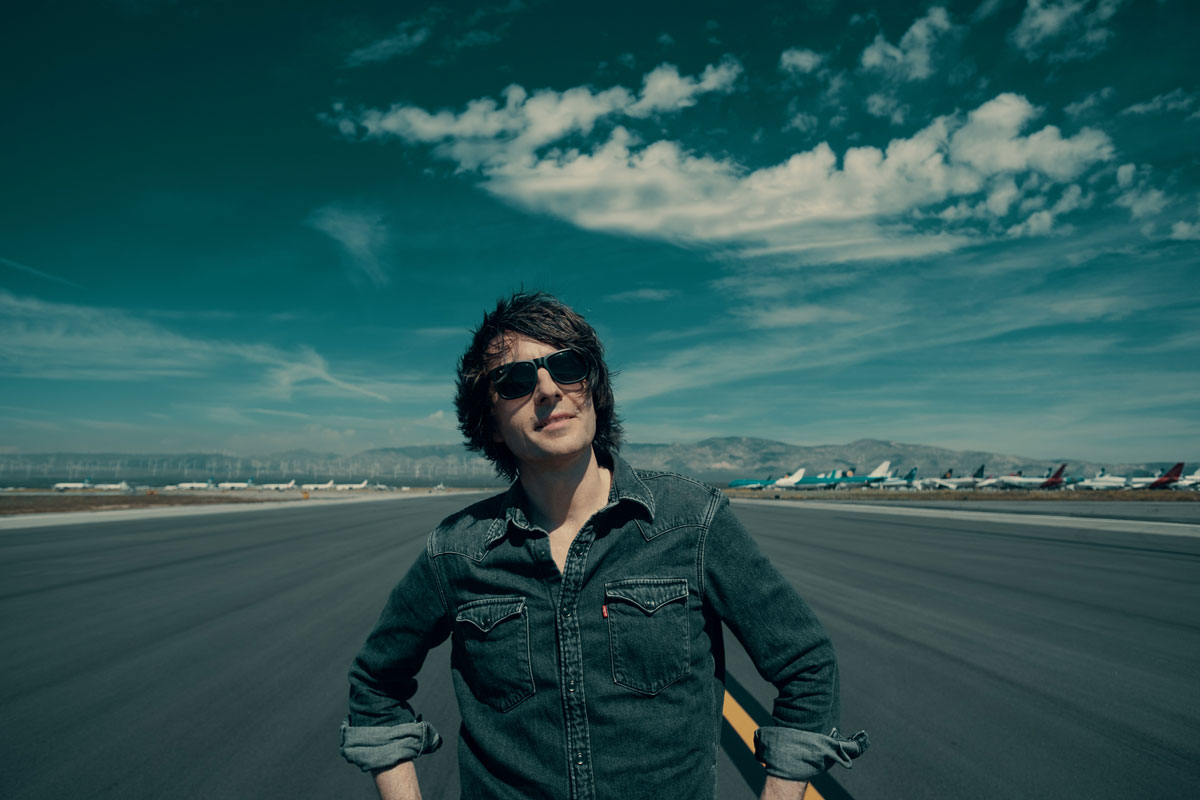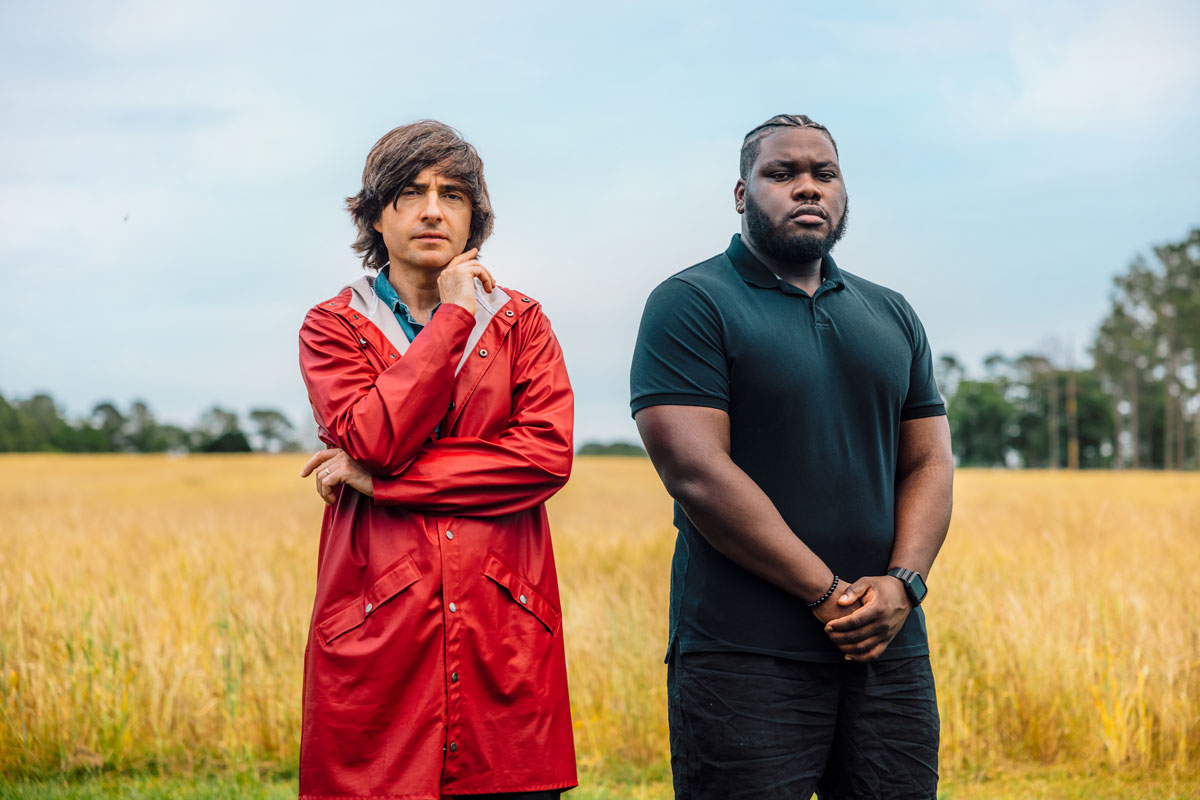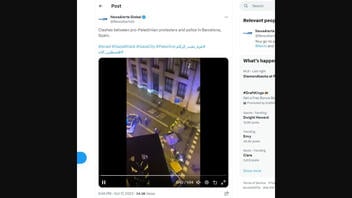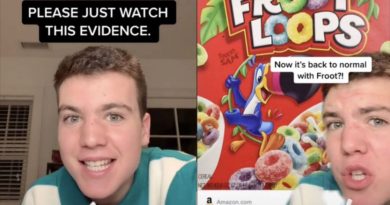Uncanny USA podcast host Danny Robins on Bigfoot, voodoo and UFOs
We were in the wilds of rural Georgia investigating this one ghost story, a really interesting case involving this young African American guy who is from a very, very deeply religious family. But the prodigal member of his family was his aunt Jean, who went off and was into voodoo and witchcraft and lived in New Orleans. She, really sadly, died in Hurricane Katrina. And then after that, he finds her old Ouija board. That spawns a really terrifying night in his life.
Then we headed over to northern California, which is proper wilderness. There are road signs for different places, and one of those places is “The End of the Road”. And literally, you hit the end of the road, and there’s just wilderness beyond that, places we were told human beings have probably never set foot. We were there to dig into the Bigfoot legend.
We met a lot of people, including people from the local Native American tribes, who were kind of surprised when they met people who did not believe in Bigfoot. They took it as accepted. As factual as bears or moose.
We’ve explored so much in the UK, it was exciting to dive into a totally new arena for ghost stories. We’ve got this amazing bunch of really eloquent, articulate, interesting people from all different walks of life, telling us their stories. We deal with ghosts, poltergeists, apparitions, but also a UFO case, and Bigfoot as well.
Since we see so much American TV and we speak the same language (more or less), we feel like the UK and the US are basically the same, but we’re not really, are we? What were the big differences that struck you after making Uncanny USA?
One key difference is that, in Britain, we’re surrounded by a very long history. We live in historic buildings. We have that we have a huge trove of potential things to be haunted by. If you live in a Victorian house, it’s entirely possible you could imagine being haunted by Victorian ghosts, or actually, literally be haunted. You’re never that far from a castle or a stately home. So, I think our ghosts are often linked to quite long-standing historic stories and folklore traditions.
A lot of American ghost stories feel much more recent. They often feel linked to traumatic and violent history. A lot of American ghost stories have to do with murder, to do with serial killers. Ghost hunting in America often takes place in asylums and prisons. You tend to find it’s less domestic and more based in these kinds of institutions that were associated with punishment or torture.
It’s interesting that America has got this very difficult relationship between the indigenous people and the people who settled and colonised it. So in America, you notice that kind of trope that you see popping up in horror movies, like Poltergeist, about having built your house on a Native American burial ground, having usurped somewhere that you shouldn’t.

Were there similarities too?
One big similarity is that Britain and Americans are terrified of death. And I think that breeds a certain kind of ghost story. I think, if you have a problem with death, and the whole business of dying, then your ghosts often end up quite terrifying. There are other cultures around the world where ghosts are more benign and more linked to a tradition of being in touch with ancestors.
But at heart, the paradox of ghost stories is that they bloody frighten us – and we want to be frightened by them – and yet they present this amazing comfort as well, this possibility that death is not the end.
We’ve stopped believing in a lot of things. We don’t we don’t believe in fairies, we don’t believe in elves, we don’t believe in unicorns. But, even if you don’t believe in ghosts, you still entertain the idea. As a sceptic, you wouldn’t find yourself in the pub debating the existence of unicorns, but you would happily make your case about what you think about ghosts. I would say, both in American society and British society, there’s still a kind of very big place for ghosts.
Another similarity between our two countries is that we’re both in this strange state of flux, of political unrest and upheaval. Whatever side of the political divide you are on, we live in times that feel chaotic, uncertain, and potentially frightening. We’re faced with death through the things we’re experiencing together: Covid, and climate change, and war. And I think, in both countries, we’re looking for answers. Ghost stories can feel like an antidote to the horrors of the world, they can feel like a place to escape to, I think.
Absolutely, we’ve talked before about the link between what’s happening in the world and the prevalence of ghost stories. Was there anything about the way that manifests in the US that pointed to particularly American fears?
It’s interesting that UFO stories have been so big in America, because UFO stories really tap into this narrative of invasion. And obviously, the negative side of that discourse around fear of the other is the kind of instinct that make certain people fear migrants and refugees coming to their country. One view of UFOs is as this threat coming, a danger to us. The other side of that is a beautiful idea that these beings are going to bring something positive. So I think you can either see UFOs as hopeful or scary, but certainly, either way you view them, I think it feeds into a very modern kind of narrative for the world.
The interesting thing, I think, about America and UFOs is of course, it’s a very American thing to be distrustful of government… and central government particularly.
Oh yeah, totally. We live in the era of the conspiracy theory, and I think UFOs, and also Bigfoot, fits into that. There is a huge distrust in government in America. I think there’s a big distrust in government here probably as well. Very sadly, our trust in authority has been eroded. A big part of the stuff that feels so frightening at the moment is we don’t feel that we have grownups looking after us anymore.
Ok, well that is a frightening thought. Which feels like a good moment to ask you, which of the new Uncanny USA cases scared you the most?
The case that takes place at night in rural Georgia a very scary one. That’s somewhere where you really do feel totally alone. When it when it’s dark there, it’s total darkness. The person describing that talks about a slice of pure terror.
Another one that scared the pants off me, as I heard it was the one that takes place in Alaska, about the Bigfoot, or The Hairy Man, as it’s often described there. It feels really scary for two reasons. One, Alaska is a landscape that could kill you flat out, even without anything paranormal there. But also, when you hear Bigfoot being described in such real terms, as this savage primate animal, in real close proximity to you, that feels very real and very shocking.

Finally, before I let you go, I did want to ask you about the Uncanny: I Know What I Saw live tour. You’ve been all over the UK with it now, and every night people tell you their stories from the audience. How has it been to meet the Uncanny community in person, en masse?
I love watching people open up in that way. And there were some madly fantastical stories, like a woman who saw the disembodied head of her neighbour in her cereal cupboard. I mean, that was hallucinatory and surreal. And yet to her – very, very real. There were some very powerful stories as well, about people feel that they’d had contact with their loved ones. I felt really privileged to share in some of those moments.
There’s this hugely cathartic outpouring of emotion every night and whether you’re a sceptic or a believer, I think there’s a need to talk about it. There’s a kind of hunger and desire to talk about this subject. Being able to dive into those delicious, deep, dark mysteries of the unknown just feels fun really. I love being on stage and sharing that, sharing an enjoyment of asking questions and a desire for answers. And that little shiver down your spine that deeply excites.
Uncanny USA begins on BBC Radio 4 and iPlayer on 30 April. Danny Robins goes on tour with Uncanny: I Know What I Saw from 23 May, uncannylive.com.


